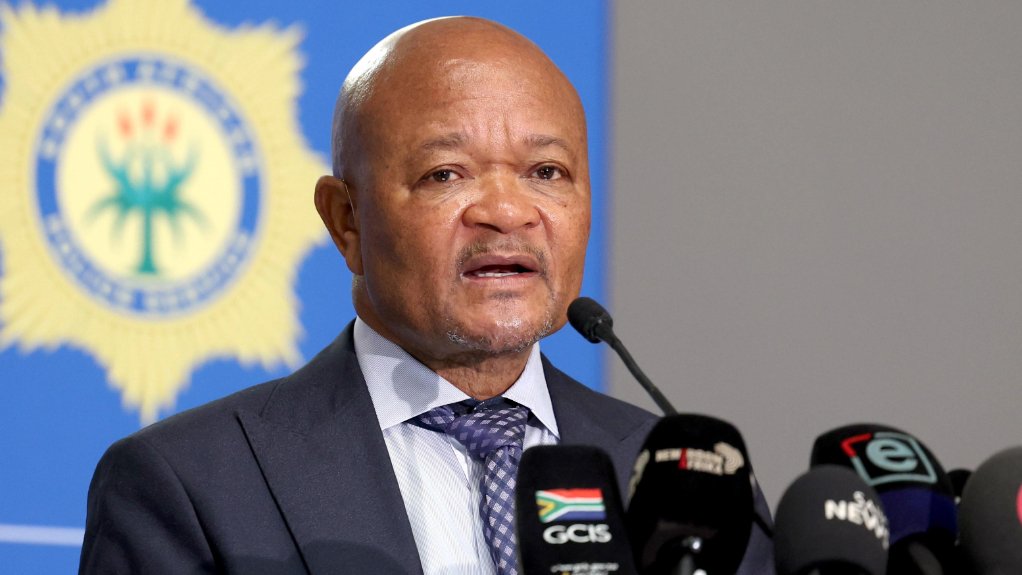Police Minister Senzo Mchunu said on Friday that reports that suggest there is a genocide in South Africa against whites are “totally unfounded and unsubstantiated”, cautioning the public about consuming and sharing information on social media platforms, where he says old or recycled news stories are often circulated to create panic.
Mchunu was speaking during a briefing on the release of the Fourth Quarter Crime Statistics, in Pretoria, where he said these “outdated reports” can give the “false impression” that crime is spiralling out of control, when in fact they do not reflect the current reality.
On Wednesday, President Cyril Ramaphosa met with US President Donald Trump, and what began as an upbeat conversation, quickly turned when Trump began grilling Ramaphosa, confronting him with allegations of a white genocide and land grabs.
Ramaphosa made this working trip to the US with the aim of discussing diplomatic, trade and economic relations.
“We have respect for the US as a country, we have respect for the people in that country and for President Trump, but we have no respect for this genocide story – at all,” said Mchunu.
He pointed out that South Africa was a democratic State, with many NGOs, NPOs and free media, that would have run headlines locally and abroad if there was such a genocide in the country.
Mchunu welcomed and noted doubts expressed by media houses in the US, the UK and in South Africa, noting that images displayed by Trump, showing many crosses on both sides of a road in KwaZulu Natal, flow from a 2020 case.
He explained that this incident occurred on September 30, 2020, on Hanover farm.
“…it is a sad story of G Rafferty and VL Rafferty – they were sadly murdered by criminals in their home. The incident sparked a very strong protest by the farming community. The crosses symbolised killings on farms over years - they are not graves. Three suspects were arrested and sentenced for their murder, and they are in jail,” he added.
He highlighted that this debunked the claim that nothing got done when crime was committed.
He also pointed to a case which occurred three months ago, in which an American pastor was kidnapped in Nelson Mandela Bay.
“…this led to an intensive search by South African Police. The suspects were arrested, and the pastor was freed back to America. Again, law was enforced,” he stated.
Mchunu acknowledged that the levels of crime in the country were high, and that the South African Police Service (Saps) was concerned and was intensifying its fight against crime and criminals.
He noted significant decreases in most crime categories this year, compared with the same period in the last financial year from January 1 to March 31, 2024.
All provinces, besides the Northern Cape, recorded decreases in murder incidents. The Northern Cape contributed 2% to the national 4 murder statistics, which Mchunu assured would be addressed with targeted actions.
Among the top 30 police stations for murder, 13 stations registered lower counts, and two stations recorded no change.
Meanwhile, 22 police officers lost their lives, with 10 of those deaths recorded in Gauteng.
Rape increased, with Gauteng and KwaZulu-Natal contributing 19.1% and 19.9% respectively to the national total. Decreases in rape statistics were recorded in Eastern Cape, Gauteng, Limpopo, North West, and the Western Cape.
In this quarter, 4 023 cases of illegal possession of firearms and ammunition were registered, which is a 2.7% increase compared to the same period last year. However, Mchunu said Operation Shanela saw 128 illegal firearms seized and 82 people arrested in the past week.
“We must, however, be clear-eyed about the challenges that remain. During this quarter, sexual offences, including rape and contact sexual offences, along with commercial crime, have shown increases. These are deeply concerning trends that demand renewed focus and urgent intervention,” he said.
FARM MURDERS
Meanwhile, he announced that as from this year, when releasing the first quarter results, the Saps would include a number of other categories of crime – killings in rural and urban areas, instead of only those on commercial farms – to show a fuller picture.
There were six attacks in rural communities in this quarter, two of which were on farm owners, one on a farm dweller, two on farm employees and five on farm managers.
He noted that in principle, the Saps did not categorise people by race, but in the context of claims of genocide of white people, the Saps needed to unpack these killings according to this category.
“The two farm owners that were murdered during the fourth quarter were African and not white. Further to that, the two farm employees and one farm manager were also African – it is the one farm dweller that was white. I do also want to mention that the recent farm murder, which occurred in Roossenekal in Limpopo occurred in the first quarter of the current financial year and will thus be reflected in the release of the next crime statistics,” Mchunu explained.
He said the history of farm murders in the country had always been distorted and reported in an unbalanced way, stating that farm murders had always included more African people in its true numbers.
“We want to reject the notion of ‘land grabbing’ in the country but instead, confirm that we do have cases of land invasions and the two are very different. Land invasions are not government policy, but are by and large acts of desperation for land by African people who find themselves landless and in need to settle.
“It is sporadic and it remains unlawful – hence the cases and investigations thereof. This is what has warranted expropriation without compensation to address the problem in a lawful, systematic way,” he explained.
EMAIL THIS ARTICLE SAVE THIS ARTICLE ARTICLE ENQUIRY
To subscribe email subscriptions@creamermedia.co.za or click here
To advertise email advertising@creamermedia.co.za or click here











